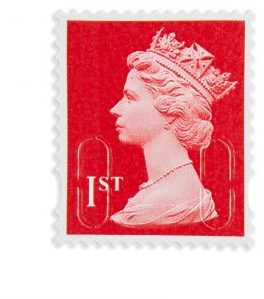Seven principles for public office holders
 High standards ‘should be not only consistently observed but also demonstrably valued’.
High standards ‘should be not only consistently observed but also demonstrably valued’.
In September 2019 the Committee on Standards in Public Life published an open letter to all public office holders on the importance of maintaining high standards and of implementing the seven Nolan Principles.
The Committee on Standards in Public Life advises the Prime Minister on ethical standards across the whole of public life in England. It monitors and reports on issues relating to the standards of conduct of all public office holders.
The 7 principles of public life apply to anyone who works as a public office-holder.
This includes people who are elected or appointed to public office, nationally and locally, and all people appointed to work in the civil service, local government, the police, the courts and probation services, non-departmental public bodies, health, education, and social and care services.
The principles also apply to all those in other sectors that deliver public services.
They were first set out in 1995 by Lord Nolan – a law lord who headed what was then effectively known as the Nolan committee on parliamentary sleaze – and they are included in the Ministerial code.
The seven Nolan Prinicples are:
1 – Selflessness: Holders of public office should act solely in terms of the public interest.
2 – Integrity: Holders of public office must avoid placing themselves under any obligation to people or organisations that might try inappropriately to influence them in their work. They should not act or take decisions in order to gain financial or other material benefits for themselves, their family, or their friends. They must declare and resolve any interests and relationships.
3 – Objectivity: Holders of public office must act and take decisions impartially, fairly and on merit, using the best evidence and without discrimination or bias.
4 – Accountability: Holders of public office are accountable to the public for their decisions and actions and must submit themselves to the scrutiny necessary to ensure this.
5 – Openness: Holders of public office should act and take decisions in an open and transparent manner. Information should not be withheld from the public unless there are clear and lawful reasons for so doing.
6 – Honesty: Holders of public office should be truthful.
7 – Leadership: Holders of public office should exhibit these principles in their own behaviour. They should actively promote and robustly support the principles and be willing to challenge poor behaviour wherever it occurs.
The letter was from Jonathan Evans, Chair of The Committee on Standards In Public Life, and addressed to all public office holders.
‘Standards in public life have rarely been more in the spotlight than they are today. Both as a Committee and as individual members we are frequently asked what can be done to maintain high standards and implement the Nolan Principles in the current political situation, which is causing real concern to many people who care about how our public life is conducted.
‘At one level, the key institutions of our democracy are doing their job providing important constitutional checks and balances. The long running and fierce dispute over Brexit is being played out largely in Parliament, the courts and the media, including social media. Such openness is itself a key principle in our public life.
‘But behaviour matters as much as formal structures. Leadership of standards needs to come from the top: from Government and from Parliament. In the current political situation, it is the view of our Committee that it is even more important that high standards are not only consistently observed but also demonstrably valued.
‘It is also vital that the tone of public debate should avoid abuse and intimidation, which have become increasingly widespread. Parliamentary democracy is under threat if those in public life and public office cannot express their views freely and without fear.
‘These long-established principles of selflessness, integrity, objectivity, accountability, openness, honesty and leadership are a personal responsibility and set the tone for leadership across the whole of public service. They are what the public expect of us.’
For further information on the 7 principles and the work of the Committee on Standards in Public Life, visit the Committee’s website and blogsite.
You could also forward the 7 Principles and the letter to your MP or local councillors and the Prime Minister and ask if they know about them.
















Boris Johnson’s post-truth government marks the end of the Nolan consensus: For 25 years, Lord Nolan’s report provided the moral framework for British public life. Today it is in tatters. https://www.middleeasteye.net/opinion/boris-johnsons-behaviour-marks-end-nolan-consensus
The MPs Code of Conduct requires MPs to uphold the law under Article III.5 : “Members have a Duty to Uphold the Law”
The Government of Mr Johnson has now deliberately set out to break the law with its “Internal Market Bill”, as announced to the House of Commons by Mr Brandon Lewis MP on 8th September and passing it’s second reading on 14 September.
We believe that any individual who votes to break the law cannot possibly be fit to hold the position of Member of Parliament in the UK. On this website we therefore present a list of those Members of Parliament who have voted to break the law, in breach of their Code of Conduct.
If you believe that MPs who have voted to break the law should now become the subject of a Recall Petition Process, please register your name and postcode below. As a first step in this process and following legal advice, we have written to Mr Robert Buckland QC MP to ask him to explain why he is not now in breach of his statutory duty, under the Constitutional Reform Act 2005, to respect and uphold the Rule of Law by his conduct in respect of the UK Internal Markets Bill.
https://www.upholdthelaw.org.uk/